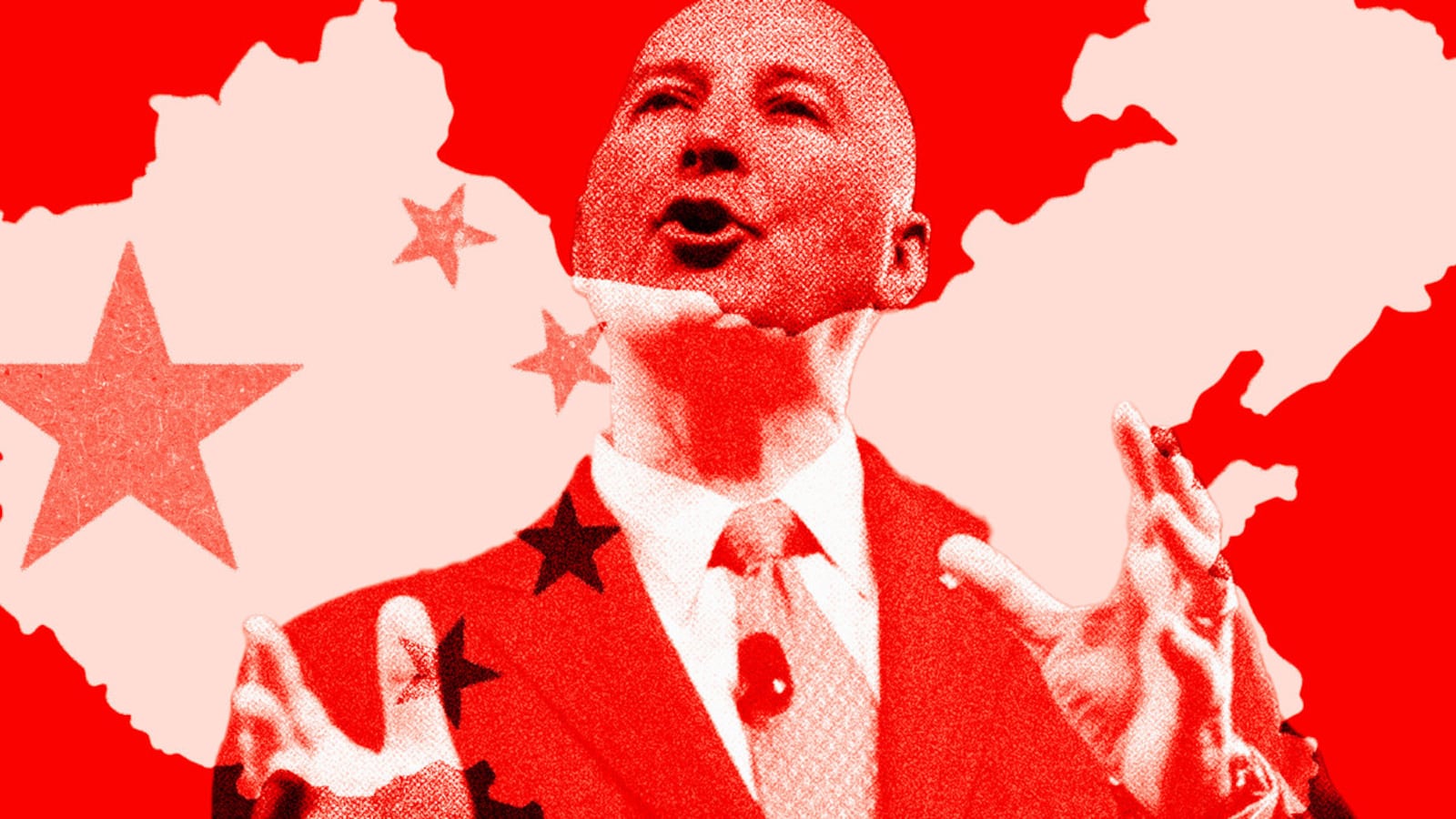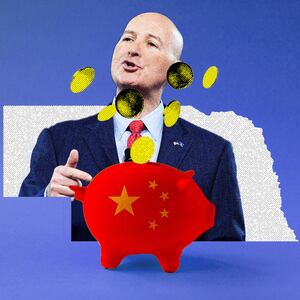Newly minted Nebraska Sen. Pete Ricketts is headed for Washington, D.C.—and straying toward a minefield of potential conflicts of interest, experts warn, thanks to his business entanglements with foreign governments.
Cornhusker State Gov. Jim Pillen, who sits in the office Ricketts occupied up until last week, handed the scion of the Chicago Cubs-owning dynasty the upper-house seat that formerly belonged to Ben Sasse, now of the University of Florida. The new federal lawmaker has yet to file a disclosure with the Senate outlining his income and investment portfolio.
But The Daily Beast revealed last year that Ricketts’ filings in Nebraska had long shown him to be a limited partner in a Beijing-based private equity fund run by tycoon Gabriel Schulze, known for engaging in backchannel diplomacy on behalf of North Korea during the Trump administration. What’s more, The Daily Beast discovered that two of the Schulze entities in which Ricketts reported possessing stakes had signed a $23 million deal during 2021 to hand over control of a massive Ethiopian cement plant to Chinese interests—literally helping to pave the way for Beijing to increase its influence in Africa.
Unfortunately, the Nebraska financial reports do not show the value or extent of his holdings in the Schulze vehicles or in the cement complex at Dire Dawa, rendering opaque his current relationship with the mill and with the state-backed Chinese firm that now controls it. And that’s exactly what worries Dr. Larry Diamond, a senior fellow and global democracy expert at Stanford University’s Hoover Institution.
“If Ricketts were running for the Senate in a normal way, this could come out, he could be asked to explain himself, to make certain commitments: if he still has investments, they could ask him to divest himself,” Diamond told The Daily Beast. “It seems to me that what the people of Nebraska need and have a right to expect is a fully transparent disclosure of what relationships he's had and a fully transparent and verifiable commitment to disentangle himself and his finances from future investments.”
A recurring concern in Diamond’s studies and writings on China is what he describes as “sharp power”—distinct from the traditional dichotomy of “soft” propaganda campaigns and “hard” military might. Sharp power, he argued, is “covert, coercive, or corrupting—and quite frequently all three.” He pointed to Russia, Saudi Arabia, and Qatar as other skilled practitioners of this form of international influence.
But Beijing stands apart as “the single most sophisticated wielder of sharp power of any authoritarian power in the world.”
Ricketts makes for a unique case, Diamond argued, due both to the power he will wield and the wealth flowing from his billionaire father, TD Ameritrade co-founder Joe Ricketts.

Then Nebraska Governor Pete Ricketts speaks to then U.S. President Donald Trump in 2018.
Pool“With regard to China, I am not sure how many opportunities they have had until now to get investment entanglements of this kind, with legislators who are at a high level,” he said. “And that’s because you have to have significant money to invest in the first place.”
The answer, Diamond argued, is transparency: not just from Ricketts personally, but from all of Congress. He called for the creation of a fully independent oversight body to review and regulate House and Senate ethics, so as to shield the American system from the intrigues of wealthy foreign actors.
“There’s a lot of countries now that are trying to use money to compromise the independence of executive and legislative government officials in democracies, because democracies are open societies, so they are more vulnerable to penetration and cooptation,” he warned.
Dr. Julian Ku, an international law professor and China watcher at Hofstra University, seconded Diamond’s call for a full divulging and accounting of Ricketts’ investments and those of his peers. He did not believe that Ricketts had yet stepped beyond the bounds of propriety or Senate rules—but warned that the Republican’s public duties could soon come into tension with his financial pursuits.
“The next US Senate is likely to consider bills to ban or at least limit foreign investment in China and perhaps with Chinese-linked firms,” Ku noted. “So it will certainly present Ricketts with a potentially direct conflict of interest that he should be asked to address and reconcile.”
Further, Ku suggested that if Schulze were to make overtures to Ricketts like he reportedly did to Jared Kushner in 2017, the Singapore-based mogul should register as a foreign agent.
Neither Ricketts’ nor Schulze’s team responded to repeated requests from The Daily Beast for comment. The irony, Ku notes, is that Ricketts has long advertised himself as a China hawk—even going so far as to counter the centenary celebrations of the Chinese Communist Party by declaring July 2021 “Victims of Communism Remembrance Month” in Nebraska.
It was that exact month that the Schulze entities he is a partner in cut the Ethiopian deal with West China Cement. But now, Ku said, Ricketts has the chance to align his money with his mouth, and exemplify transparency in an age of subterfuge.
“There’s a lot of foreign governments playing this game. It’s a challenge, it’s a policy problem, that’s not limited to Ricketts, though he's a good example of it,” Ku said. “I think he can take the leadership on this, and say ‘look, I’m willing to disclose all my interests related to foreign governments, and everyone else should do the same.’”







